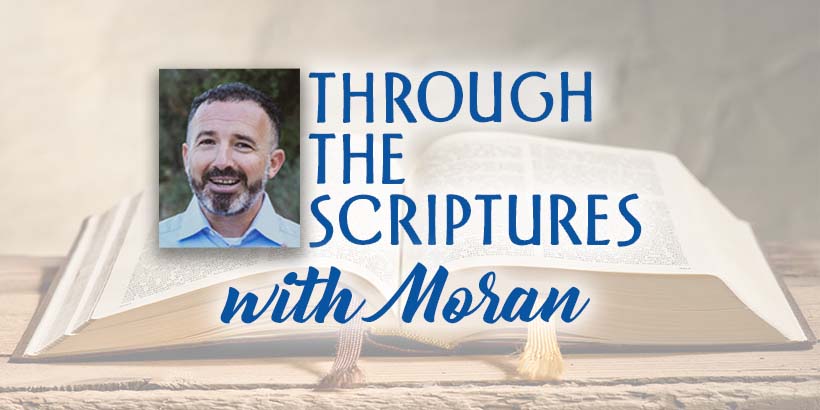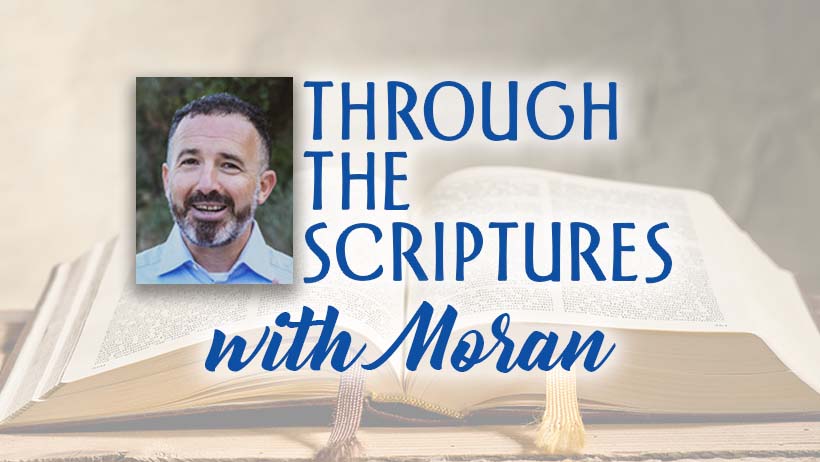
Parashat D’varim (Words)
D’varim (Deuteronomy) 1:1-3:22
Haftarah: Isaiah 1:1–27
Shabbat Hazon (Vision)
This Shabbat is called Shabbat Hazon, “the Sabbath of Vision.” It falls just before the ninth of Av, known as Tisha b’Av, a day when we remember some of the most horrific events in Israel’s history such as the destruction of the First and Second Temples, the exile from the Land, and generations of loss, persecution, and longing.
But Shabbat Hazon is not just about looking back; it is about seeing clearly. Isaiah begins with this line:
The vision of Isaiah the son of Amoz concerning Judah and Jerusalem, which he saw during the reigns of Uzziah, Jotham, Ahaz, and Hezekiah, kings of Judah.
Isaiah 1:1
Isaiah’s vision is not gentle; it is raw and direct. The people continue offering sacrifices, showing up in the courtyards of the Temple but their hearts are far from God. Justice is absent and righteousness has been replaced by corruption.
In this week’s Torah portion, D’varim, Moses begins to recount the journey of the children of Israel from the wilderness to the edge of the Promised Land. He reminds them of what is ahead:
See, I have placed the land before you; go in and take inheritance of the land which the LORD swore to give to your fathers, to Abraham, to Isaac, and to Jacob, and their descendants after them.
Deuteronomy 1:8
This is more than a land grant, it is a calling to live differently. But even here, Moses confesses his own human limitations:
And I spoke to you at that time, saying, ‘I am not able to endure you alone. The LORD your God has multiplied you, and behold, you are this day like the stars of heaven in number. May the LORD, the God of your fathers increase you a thousand times more than you are, and bless you, just as He has promised you! How can I alone endure the burden and weight of you and your strife?
Deuteronomy 1:9–12
The word Moses uses here—Eichah (אֵיכָה)—means “How?” How can I carry this? It is a word of overwhelm, of burden and of sorrow.
We hear it again in Isaiah:
How the faithful city has become a prostitute, she who was full of justice! Righteousness once dwelt in her, but now murderers.
Isaiah 1:21
And again in Jeremiah:
How can you say, ‘We are wise, and the Law of the LORD is with us’? But behold, the lying pen of the scribes has made it into a lie. The wise men are put to shame, they are dismayed and caught; behold, they have rejected the word of the LORD, so what kind of wisdom do they have?
Jeremiah 8:8–9
This word Eichah is not just poetic. It is a cry, a gasp, a grief that sits in the chest and does not move.
And this year, we feel that cry in our bones. Since October 7, 2023, Israel has not known rest. That day was not just an attack, it was a shattering, a rupture that has changed the emotional and spiritual landscape of this nation. The war has continued, the grief has deepened, the pain is not over. Families are still grieving, communities are still broken, the hostages are still not home. There are funerals without pause. Headlines with no relief, and in the silence between each moment, there is a quiet, crushing exhaustion.
It is not abstract, it is personal. It is the empty seat at the Shabbat table.
The face missing from the photo. The mother whose eyes no longer shine.
The child who wakes up in fear. The trauma that no one talks about, because everyone is carrying their own.
So yes, Eichah.
How do we keep going?
How do we carry this and not collapse beneath it?
How do we speak of hope when we ourselves feel numb?
The prophets asked these same questions. Their answers were never simple. But they were always honest.
Isaiah continues:
Hear the word of the LORD, You rulers of Sodom; listen to the instruction of our God, you people of Gomorrah. ‘What are your many sacrifices to Me?’ says the LORD. ‘I have had enough of burnt offerings of rams and the fat of fattened cattle; and I take no pleasure in the blood of bulls, lambs, or goats. When you come to appear before Me, who requires of you this trampling of My courtyards? Do not go on bringing your worthless offerings, incense is an abomination to Me. New moon and Sabbath, the proclamation of an assembly—I cannot endure wrongdoing and the festive assembly. I hate your new moon festivals and your appointed feasts, they have become a burden to Me; I am tired of bearing them. So when you spread out your hands in prayer, I will hide My eyes from you; yes, even though you offer many prayers, I will not be listening. Your hands are covered with blood. Wash yourselves, make yourselves clean; Remove the evil of your deeds from My sight. Stop doing evil, learn to do good; seek justice, rebuke the oppressor, obtain justice for the orphan, plead for the widow’s case.’
Isaiah 1:10–17
God is not interested in performance or religion for show. He is calling His people to repentance, to realignment, to action… and then comes the promise:
“Come now, and let us debate your case,” Says the LORD, “Though your sins are as scarlet, they shall become as white as snow; though they are red like crimson, they shall be like wool. If you are willing and obedient, you will eat the best of the land; But if you refuse and rebel, you will be devoured by the sword.” For the mouth of the LORD has spoken.
Isaiah 1:18–20
This is not light; it is weighty. But it is also full of mercy, because even after devastation, God offers restoration. Even in the ruins, He still invites us to return.
As we finish these three weeks of lament and walk toward Tisha b’Av, we carry both memory and reality. We carry the weight of centuries and the pain of today.
I am not speaking from a distance. Over the past almost two years, I have walked through deep personal loss - family, friends, people I loved - taken in this war. I have seen the trauma and I have felt it. I carry it with others, every day. Grief has become part of daily life.
I have asked Eichah more than once.
How do we keep showing up when we are not whole?
How do we keep believing when the weight is this heavy?
And still, I believe this: God has not turned His face away.
This is not easy faith, neither polished nor poetic.
It is faith that limps, a faith that bleeds.
Faith that stands in ashes and chooses to hold on.
Because even now, in the middle of it all, He still says:
Return. Rebuild. I am still here.
Shabbat Shalom,
Moran


One Comment on “Faith that Stands in the Storm”
So heart-felt. I feel the pain and ache that you and all the Jewish people who have been and are being maligned with words and attacked, harmed, and killed with weapons just for being Jewish, are forced to endure. Those who believe in Messiah have some understanding of the reasons and the prophetic necessity of what will happen in the last days, but many Jews are baffled by the inexplicable hate.
How I long for the day when Israel will be living in peace under Messiah from the river to the river. Genesis 15:18
Oh, how much pain and suffering humanity could avoid if they would just accept God’s gift of the land of Israel to the Jewish people, “but they would not.”